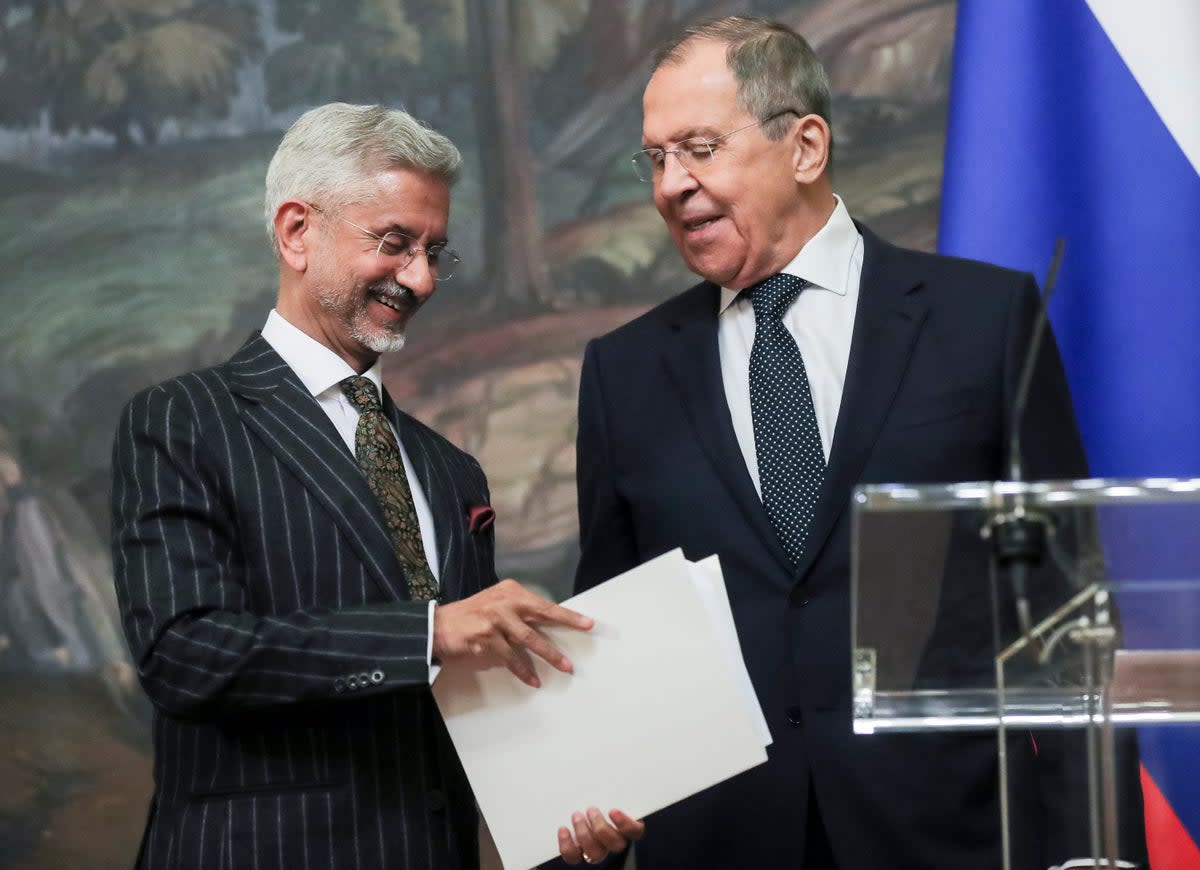Ukraine war ‘dominates’ talks between India and Russia in Moscow OLD

Indian foreign minister Subrahmanyam Jaishankar on Tuesday said the conflict in Ukraine was a dominant feature in New Delhi’s bilateral talks with Moscow during his visit to Russia for the first time since its invasion of Ukraine.
Mr Jaishankar arrived in Moscow on a two-day visit on Monday to hold talks with his Russian counterpart Sergey Lavrov — a significant meeting that has sparked speculations of India mediating between the two warring nations to broker peace talks.
“Ukraine conflict was the dominant feature,” Mr Jaishankar said, adding that both countries will continue to have discussions on it.
“As the PM conveyed to Russian president Putin, this is not an era of war. The global economy is simply too interdependent for significant conflict anywhere not to have major consequences elsewhere,” he said, referring to Indian prime minister Narendra Modi’s comments in Samarkand which were praised by the West.
The Indian minister told his Russian counterpart that the “global south is feeling this pain very acutely” of the ongoing hostilities which have increased concerns over energy and food security.
India will be supportive of “any initiatives that de-risk the global economy and stabilises the global order at this stage”, Mr Jaishankar added.
Describing India’s relationship with Russia as “exceptionally” steady, Mr Jaishankar said Moscow has been a steady and time-tested partner for Delhi.
The leaders of the two countries, which are on target to achieve an annual trade turnover of $30bn, discussed a wide range of issues, including nuclear programme, space, defence and trade.
Mr Jaishankar raised concerns over the trade imbalance with Russia, saying balance is required for long-term stability.
“India and Russia have grappled with how to expand our bilateral trade. We are naturally concerned about trade imbalance and have raised this with Russian side regarding how to arrest impediments that stand in the way of Indian exports,” he added.
The visit is being closely watched by India’s western allies who have raised concerns over New Delhi’s increasing bilateral trade with Russia which almost tripled this year amid the on war.
It also assumes significance as it comes days before the G-20 summit in Bali, which is scheduled for 15-16 November. It will be the first time Vladimir Putin and the western leaders, including Joe Biden, will be in the same room.
Refusing to bow down to the pressure of joining western sanctions or calling out Moscow for the war in Ukraine, Delhi has stopped short of officially condemning Russia but stressed on dialogue and diplomacy.
Mr Lavrov said India and Russia “maintain regular contact, which reflects the pace that our leaders are setting for our relations, the relations of a special privileged strategic partnership”.
“It is certainly important to compare our stances in the time of change that the international community is going through,” Mr Lavrov pointed out.
India has also repeatedly voted to abstain on various motions to block Russia in the UNSC. According to Vortexa, an energy cargo tracking firm, Russia was the leading supplier of oil to India in October, surpassing traditional exporters Saudi Arabia and Iraq.
Mr Jaishankar said buying oil from Russia serves to India’s advantage and that Delhi will continue importing from Russia.
“There is stress in the energy market.. created by a combination of factors...It is our fundamental obligation to ensure that the Indian consumer has the best possible access on the most advantageous terms to the international market,” he said.
“In that respect, quite honestly, we have seen that the India-Russia relationship has worked to advantage. So if it works to my advantage, I would like to keep that going.”


